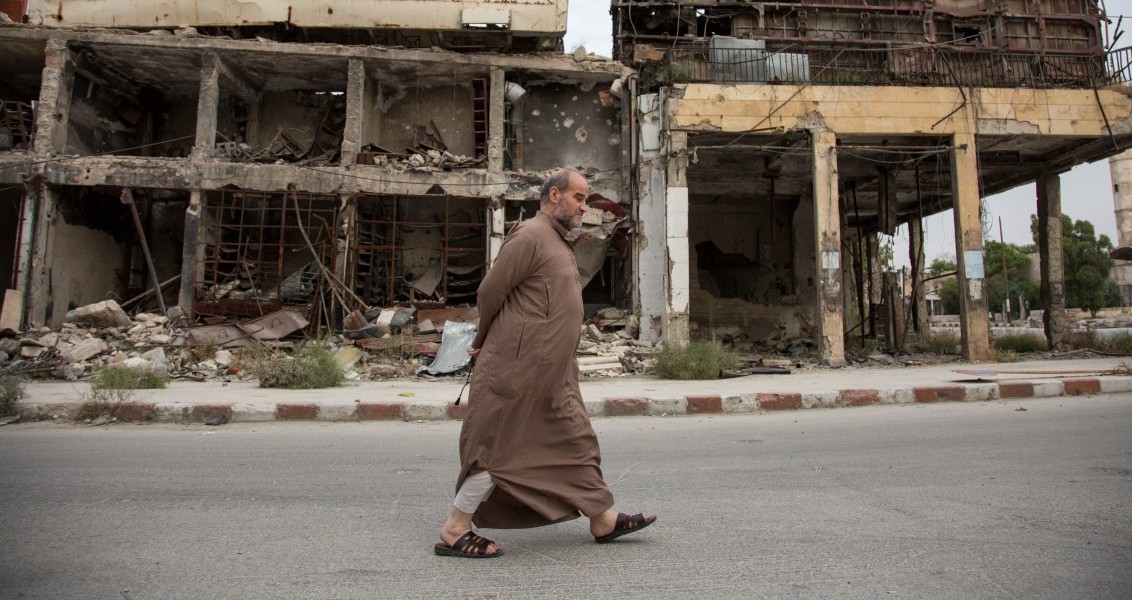U.S. President Barack Obama assumed the office of the presidency with very ambitious projects in mind eight years ago. His discourse, his inauguration speech and his presidential campaign made everybody around the world a little more optimistic about the direction of the international system. He probably wanted his foreign policy to be remembered for the deal with Iran and restoring ties with Cuba. The “Asia pivot” policy, which was largely abandoned in his second term, could be another story that he wanted to tell after his retirement. And of course the killing of Osama Bin Laden was one of the most significant achievements of his era. However, from what is written and discussed nowadays, it is increasingly becoming certain that President Obama’s foreign policy will be remembered mostly by his policy over Syria and the consequences of the policies that the international community has witnessed in Aleppo for the last few weeks. Aware of the impact of Syria to his legacy, in his last press conference President Obama once more tried to explain why he acted as he did. However, with what has happened in Aleppo, there is not much that can be said to excuse the U.S.’s fatefully reserved approach.
In his press conference in regards to the massacres in Aleppo, President Obama stated that “The world as we speak is united in horror at the savage assaults by the Syrian regime and its Russian and Iranian allies on the city of Aleppo…We have seen a deliberate strategy of surrounding, besieging and starving innocent civilians. We’ve seen the relentless targeting of humanitarian workers and medical personnel, [neighborhoods] reduced to rubble and dust. There are continuing reports of civilians being executed. These are all horrific violations of international law.”
The really enormous problem here is all of these things took place during the tenure of President Obama. And contrary to what he said in numerous different interviews about Syria, yes he could do more. Yes he could save lives. It was not a good idea to look the other way while Iranian militia were helping to kill civilians in Syria, in order to have a nuclear deal with Iran. It was not a good idea to procrastinate with wishful thinking while Russia was changing the dynamics on the ground. It was not a good idea to think about Syria through the false historical analogies, such as Vietnam and Iraq. It was not a good idea to constantly signal to the Assad regime that the U.S. will not use force against Syria. It was not a good idea to let a petty dictator violate the norms and rules of the international system that the U.S. helped to generate and protect for the last 50 years. It was not a good idea to constantly belittle the Syrian opposition for being disorganized and weak without helping them. And of course, it was not a good idea to alienate all of the regional allies; to decide not to act after chemical attacks in Syria following a walk and talk across the South Lawn, and to reject plans for Syria from the other members of his administration. But it was a terrible idea to forget about the tragedy in Syria following the rise of Daesh terrorism and fail to create a safe zone for the people whose lives are threatened by the bombs of the Assad regime. At the end of the day it was not “a problem from hell.” But it became a hell because of the problems that the international community did not want to understand or face.
There are clear turning points in the U.S. policy over Syria. First of all, the “Assad must go” statement by President Obama and later similar remarks by high level officials of the Obama administration will continue to be discussed in the foreseeable future. For President Obama, it turns out that it did not mean much or, at least, not enough. However, for many people around the world and especially for the Syrians, such a statement from the president of the United Stated meant so many things. The most terrible consequence was that very soon, Assad also figured out those words did not mean much, and when he did, he intensified his crackdown and attacks on the civilians in the country.
The inconsistency between the statements and actions reached a peak with the “red line” statement and its aftermath. Between the “red line” statement and the chemical weapons attack on Ghouta, there were various reports of the use of chemical weapons by the regime. However, until Ghouta there was not much reaction or action from the administration. Following the most well documented chemical attack, this time President Obama signaled that he was going to act, but in his interviews he made every effort to underline that he is not going to target the regime, as if the chemical weapons exploded by themselves. Then, making things even worse, he soon after decided not to act at all.
In all of these turning points, the U.S. lost its deterrent power, since everybody understood that no matter a breach of red lines and international norms, the Obama administration will fail to act. So when Russians troops started to intervene in the conflict in Syria, naïve and wishful thinking overtook the Obama administration. They were expecting in part Russia to defeat Deash and in part Russia to get into a swamp in Syria. The same incomprehensible form of optimism emerged when Hezbollah intervened and al-Qaeda started to rise in Syria. In that instance, some in the administration wrongly thought that Hezbollah and al-Qaeda will bleed each other dry and the conflict would become a strategic victory for the United States.
While the Obama administration was making all of these decisions, the regime killed more than 500,000 people and more than 6 million were displaced. In the last two weeks, Aleppo has witnessed one of the most violent phases of the regime’s aggression. Thousands of civilians have died in front of the world’s media. It has become the most well documented massacre of our age. And it happened while the president of the U.S. watched. In his press conference, Obama stated that he felt responsibility. And yes he should. He stated that “There are places around the world where horrible things are happening and because of my office, because I’m president of the United States, I feel responsible. I ask myself every single day: is there something I could do that would save lives and make a difference and spare some child who doesn’t deserve to suffer? So that’s a starting point. There’s not a moment during the course of this presidency where I haven’t felt some responsibility.” If he had not only felt responsibility but also acted responsibly, thousands of lives could have been saved. He could do so much to change the dynamics on the ground.
At the end of the day, Obama did not act and the people of Syria suffered. This will continue to haunt President Obama’s foreign policy legacy. His U.N. ambassador, Samantha Power, who earned a big part of her fame writing the book “A Problem from Hell: America and the Age of Genocide,” has a new chapter to write.
[Daily Sabah, December 19, 2016]
In this article
- Foreign Policy
- Opinion
- 2016
- Al Qaeda
- Aleppo
- Asia-Pacific
- Assad Regime
- Bashar Al Assad
- DAESH
- Daily Sabah
- Genocide
- Ghouta
- Hezbollah
- International Law
- Iraq
- Islamic Republic of Iran
- Middle East
- Opposition
- Pacific
- Peace Corridor
- Red Line
- Russia
- Safe Zone
- Syria
- Syrian Civil War
- Syrian Conflict
- Syrian Crisis
- Syrian Opposition
- Syrian Regime
- Terrorism
- U.N.
- United Nations (UN)
- United States (US)
- US President



